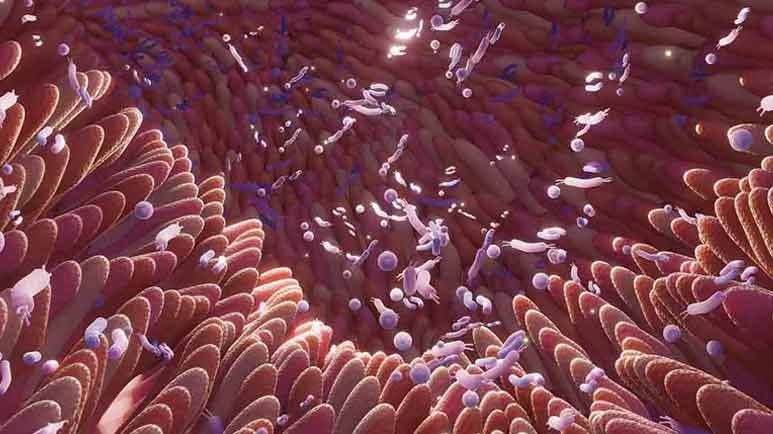The Surprising Link Between Your Gut Fungi, Genetics, and Chronic Disease Risk
Description
STORY AT-A-GLANCE
Your genetics influence which fungi grow in your gut, and these fungi directly affect your risk for chronic conditions like heart disease
Researchers discovered 148 genetic variants linked to nine groups of gut fungi, proving that your DNA helps shape your gut health
Antibiotics kill bacteria but leave fungi untouched, allowing harmful fungal strains to overgrow and increase disease risk
Two people eating the same foods can have very different health outcomes because genetic differences decide which fungi thrive in their gut
Gut microbiome patterns, including fungi and bacteria, are strong predictors of cardiovascular disease risk, yet most clinics still ignore this critical factor

For years, doctors have focused on diet, lifestyle, and bacterial microbes in the gut as drivers of most chronic conditions like heart disease and diabetes. However, new science is pointing to another hidden factor — gut fungi.
There’s emerging evidence showing that the fungi in your gut shape inflammation, immunity, and the way your body responds to long-term illness. Researchers also suggest that these overlooked organisms may be closely tied to your genetic makeup, raising new questions about how much control you actually have over chronic disease risk.
Fungi — The Hidden Players in Your Gut and Their Link to Disease
A recent study published in PLOS Biology investigated how human genes interact with gut fungi — also known as the mycobiome — and how this interaction is tied to chronic disease risk. The research team from Penn State’s One Health Microbiome Center carried out what’s called a genome-wide association study (GWAS), which scans the entire human genome to find genetic variants that are linked with specific traits — in this case, the types and amounts of fungi living in the gut.1 2
"This research is our first major step toward understanding the impacts of human genetic variation on a very understudied group of gut microorganisms — the mycobiome," study author Seth Bordenstein said.3
Their goal was to see whether certain genetic markers not only shaped fungal populations but also increased the likelihood of developing conditions like cardiovascular disease. According to study coauthor Emily Davenport:
"Gut fungi are greatly understudied compared to other gut microbes like bacteria and archaea. We know much less about what determines the fungi that reside in the gut, and whether they are important for human health."4
The researchers looked at data from 125 individuals collected by the U.S. National Institutes of Health’s Human Microbiome Project — The researchers looked at stool and blood samples to see how everyday genetic differences and fungal patterns align with known disease risks. As explained by EurekAlert:
"After identifying and characterizing fungi-associated genetic variants by which human genomic variation associates with variation in fungal communities, they tested whether relationships between genetic loci and gut fungi affect human disease risk."5
What they uncovered was striking — 148 genetic variants across seven chromosomes were strongly linked with nine distinct groups of fungi in the gut. Even more compelling, one of those fungi — Kazachstania, a type of yeast — showed a direct connection with cardiovascular disease risk. This suggests that your genetic makeup influences which fungi take hold in your digestive system, and that combination could tilt the scale toward chronic illness.
While the study acknowledged the small sample size, the researchers validated their findings in larger groups — These include UK and international cohorts studying coronary artery disease. This matters because it means the results aren’t random chance; it shows that the genetic-fungal-disease link is real, measurable, and consistent across populations.
Those with unexplained chronic health struggles stand to benefit most from these findings — If you have persistent fatigue, gut discomfort, or a family history of cardiovascular disease, understanding your genetic-fungal profile could reveal why the usual treatments haven’t worked. It adds another layer to the puzzle — one that points to more precise solutions.
Fungi Are Not Just Passive Bystanders
For decades, conventional health advice has centered on good and bad bacteria in the gut and how food shapes them. But this research has changed that; it puts the spotlight on gut fungi instead and how they actively interact with your genes and influence disease development.
Biologically, the mechanism at play comes down to how fungi interact with the immune system and inflammation — The study shows that certain fungi — like Kazachstania, for example — influence the chemical environment of the gut, which in turn affects how your body responds to stressors. When genes shape which fungi are allowed to thrive, they indirectly shape your immune balance.
Too much of the wrong fungi and your immune system shifts into a low-level inflammatory state — This is a known driver of chronic conditions. It explains why standard bacterial probiotics don’t always solve gut problems — because the fungal side of the microbiome has its own role in the equation.
The presence of certain gut fungi is not random — Instead, it is guided by genetic instructions, like a code telling your body which fungal species to allow and which to suppress. This discovery explains why two people who eat the same foods might have very different health outcomes.
<label class="hide-text" contenteditable="false">Text within this block will maintain its original spacing when published</label>If your genes encourage fungi linked to inflammation, you are more likely to struggle with chronic disease, while someone else with different genetics may not. This could explain why some people seem to develop chronic diseases despite making the same healthy choices as their peers.
This doesn’t mean that diet isn’t important, though — The food you eat is still essential for optimal health; however, the evidence shows that even the best diet might not completely override genetic influences.
Antibiotics and Their Hidden Impact on Gut Fungi
Antibiotics, whi






